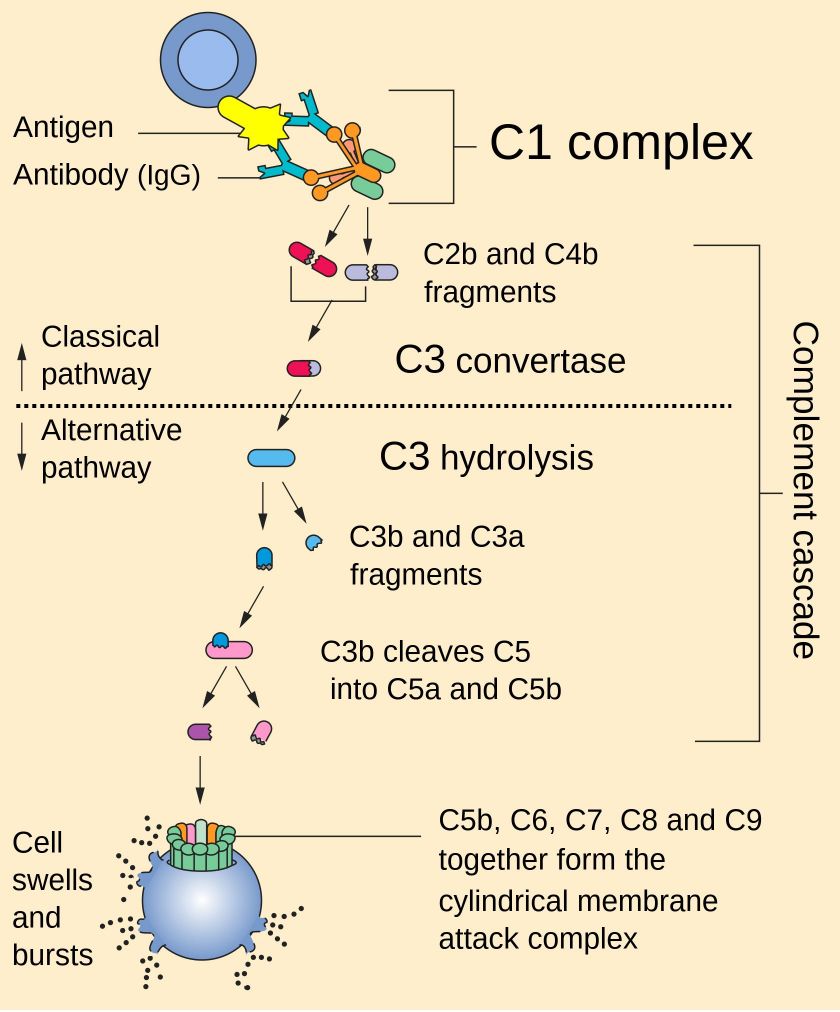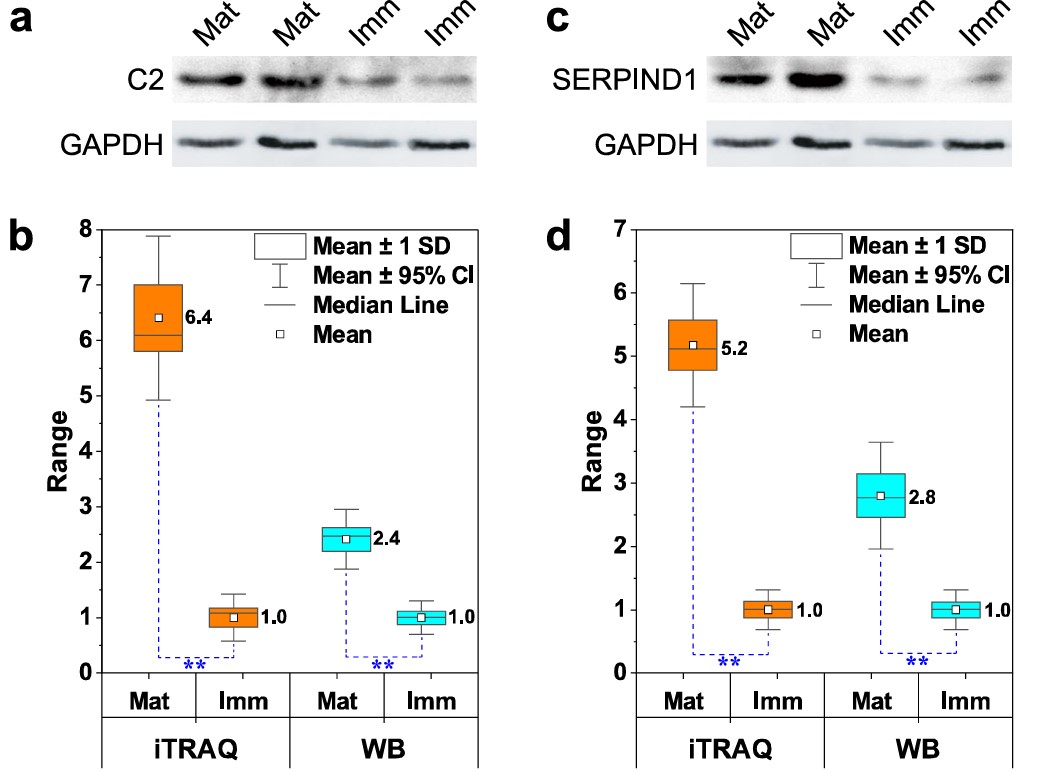Creative Biolabs is an innovative and ambitious company which delivers value-added
services. We own brilliant antibody engineering platform, protease inhibitor platform, and drug discovery
platform. We are fully equipped to partner with our clients who are doing or may have the desire to work on
complement systems for drug discovery and validation.
C2
Encoded by C2 gene in human, C2 helps regulate part of the immune system known as the complement
system. The complement system consists of a group of proteins that function synergistically to eliminate the foreign
invaders such as bacteria, virus, parasites, trigger inflammation, remove the debris of the cellular contents. The
complement system is composed of three pathways - classical pathway, lectin pathway, and alternative pathway. For
the classical pathway, C1 complex derived from the classical pathway is activated and cleave C4 and C2 to form the
C3 convertase. C3 convertase triggers further activation of the pathway. Similarly, when the lectin pathway is
initiated by the carbohydrate on the surface of the foreign invaders, C2 will be cleaved and activated by
mannose-binding protein-associated serine protease (MASP).
 Distributed under Public Domain, from Wiki,
without modification.
Distributed under Public Domain, from Wiki,
without modification.
Fig.1 The complement system.
Function
C2 is required for the formation of the C3 convertase. For the classical pathway, the C1 complex will be activated,
when the foreign invaders are detected by the antibody. C1 complex further cleaves C4 and C2 into C4a, C4b, and C2a,
C2b respectively. C2a is released into the fluid phase and binds C4b to form the C3 convertase in the presence of
Mg2+. It is speculated that the cleavage of C2 results in a conformational change of C2b while the C2a
fragment retains most of the original structure. Similarly, C2 is cleaved by mannose-binding protein-associated
serine protease 2 (MASP2).
C2-related Disease
C2 deficiency is a disorder when the malfunction of the immune system is triggered, resulting in a form of
immunodeficiency. Immunodeficiencies are conditions when the immune system is not able to protect the body
effectively from foreign invaders such as bacteria and viruses. People with C2
deficiency are associated with systemic lupus
erythematosus (SLE) and are susceptible to the risk of recurrent bacterial
infections, specifically of the lungs (pneumonia), the inflammation of the membrane covering the brain and
spinal cord (meningitis), and the blood (sepsis), which may be
life-threatening.
Approximately 90% of people with complement component 2 deficiency have a mutation that removes nucleotides from
the C2 gene. This mutation enables the prevention of C2 production. As C2 is essential to form C3
convertase, the activation of the complement system is stalled. Furthermore, the ability of the complement system to
fight infections is diminished. The dysfunctional complement system is unable to distinguish the normal cells and
invaders. It sometimes attacks normal tissues, leading to autoimmunity. Alternatively, the dysfunctional complement
system may at times perform partial attacks on foreign invaders, which leaves behind foreign fragments and debris.
The diminished complement system cannot distinguish from the body's tissues, so the complement system attacks the
normal tissues, leading to disorders.
With professional knowledge and rich research experiences in drug discovery and complement therapeutic
field, Creative Biolabs' outstanding research team are providing high-quality
biotherapeutics development services based on the complement system. We offer turn-key or ala carte services
customized to our client's needs. If you are interested in our platform or you are calling for our services, please contact us for detailed information.
Published Data
 Fig.2 Western blot examination of C2 and SERPIND1 proteins in yak follicular fluid samples.1
Fig.2 Western blot examination of C2 and SERPIND1 proteins in yak follicular fluid samples.1
Ovarian follicle fluid (FF), crucial for oocyte development and maturation, was examined in yaks. Researchers collected mature and immature FF from three healthy yaks and employed mass spectrometry for protein quantification. Subsequent analyses, including correlation, principal component, and expression pattern analysis, identified differentially expressed proteins (DEPs) such as complement C2 and SERPIND1. Immunoblot assays using anti-C2 antibodies employing anti-C2 antibodies have substantiated the elevated presence of C2 and SERPIND1 in mature FF relative to their levels in immature FF. These findings enhance our understanding of the follicular microenvironment and suggest that C2 and SERPIND1 could serve as protein markers for yak follicle maturity, aiding reproductive research.
Related Product
Reference
-
Pei, Jie, et al. "Differential proteomic analysis demonstrates follicle fluid participate immune reaction and protein translation in yak." BMC Veterinary Research 18.1 (2022): 34. Distributed under Open Access license CC BY 4.0, without modification.
Questions & Answer
A: Emerging technologies for complement C2 regulation include targeted nanoparticles delivering siRNA to inhibit C2 expression, CRISPR/Cas9 gene editing to modulate C2 function, and antibody-based therapies neutralizing C2 activity. These innovations hold promise for precise and effective regulation of the complement cascade in various diseases.
A: Yes, localized targeting of C2 is being explored using techniques like site-specific drug delivery, nanoparticles, and gene editing tools. These strategies aim to concentrate therapeutic interventions directly at the affected site, minimizing systemic effects and enhancing treatment efficacy for complement-related disorders.
A: We have ongoing collaborations and partnerships with a variety of academic institutions, pharmaceutical companies and research organizations to accelerate the development of C2-focused therapies. We combine expertise and share resources to advance research and preclinical studies of new therapies targeting complement C2.
For Research Use Only.
Related Sections:


 Fig.2 Western blot examination of C2 and SERPIND1 proteins in yak follicular fluid samples.1
Fig.2 Western blot examination of C2 and SERPIND1 proteins in yak follicular fluid samples.1